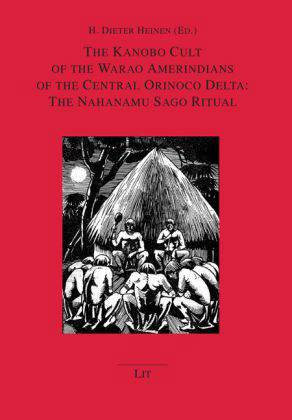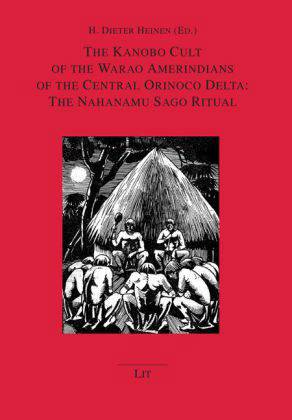
Door een staking bij bpost kan je online bestelling op dit moment iets langer onderweg zijn dan voorzien. Dringend iets nodig? Onze winkels ontvangen jou met open armen!
- Afhalen na 1 uur in een winkel met voorraad
- Gratis thuislevering in België vanaf € 30
- Ruim aanbod met 7 miljoen producten
Door een staking bij bpost kan je online bestelling op dit moment iets langer onderweg zijn dan voorzien. Dringend iets nodig? Onze winkels ontvangen jou met open armen!
- Afhalen na 1 uur in een winkel met voorraad
- Gratis thuislevering in België vanaf € 30
- Ruim aanbod met 7 miljoen producten
Zoeken
The Kanobo Cult of the Warao Amerindians of the Central Orinoco Delta: The Nahanamu Sago Ritual
Volume 41
€ 29,45
+ 58 punten
Omschrijving
KANOBO AROKOHOTU is the centerpiece of the pleading ceremony for the children of the Waraowitu community directed to the Kanobo Araobo, the "Supreme Spirit", at the time of the onsetting rainy season when a high percentage of them dies of intestinal illnesses. This chant is also called wahi arokohotu, the "song of the howler monkey", as an expression of Warao gerontocracy. It is at the same time the NAHANAMU sago ritual, the principal festivity of the Waraowitu or "true Warao" of the Central Orinoco Delta, during which they distribute sago starch, which is their main diet. The narrative is the spontaneous performance by the well-known Winikina bahanarotu-shaman Antonio Lorenzano "Idamo Kabuka", told in November 1977 and transcribed/translated by Heinen together with two grandsons of the former, Tirso and Segundo Rivero. It is the first native report by a knowledgeable Warao shaman and headman and an authentic expression of the "Marsh People's" aboriginal religiosity.
Specificaties
Betrokkenen
- Uitgeverij:
Inhoud
- Aantal bladzijden:
- 128
- Taal:
- Engels
- Reeks:
- Reeksnummer:
- nr. 41
Eigenschappen
- Productcode (EAN):
- 9783643900036
- Verschijningsdatum:
- 22/05/2009
- Uitvoering:
- Paperback
- Formaat:
- Trade paperback (VS)
- Afmetingen:
- 146 mm x 212 mm
- Gewicht:
- 181 g

Alleen bij Standaard Boekhandel
+ 58 punten op je klantenkaart van Standaard Boekhandel
Beoordelingen
We publiceren alleen reviews die voldoen aan de voorwaarden voor reviews. Bekijk onze voorwaarden voor reviews.










